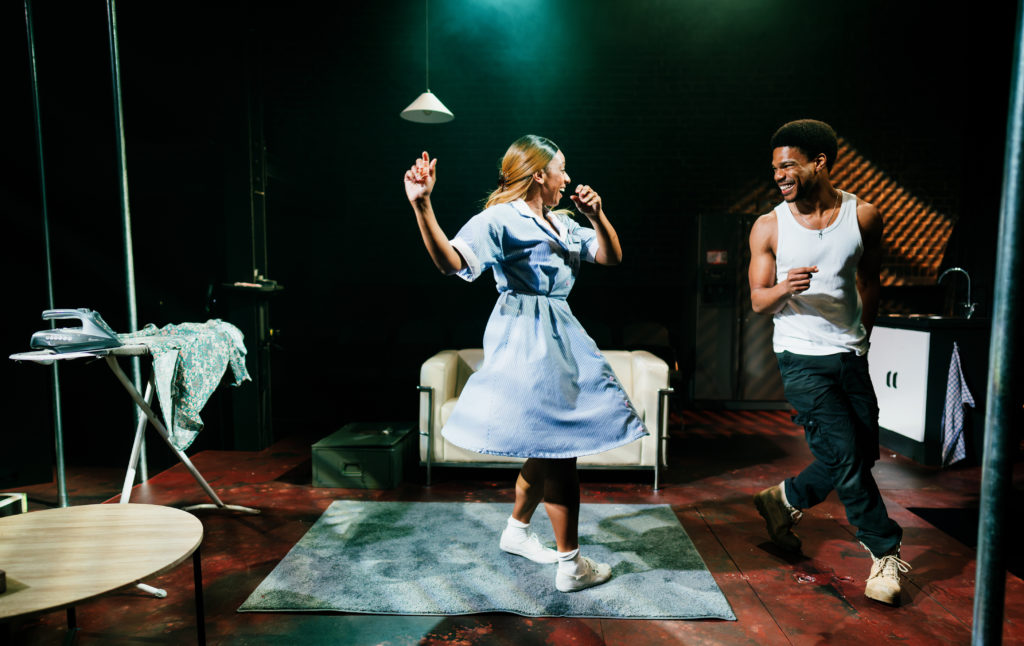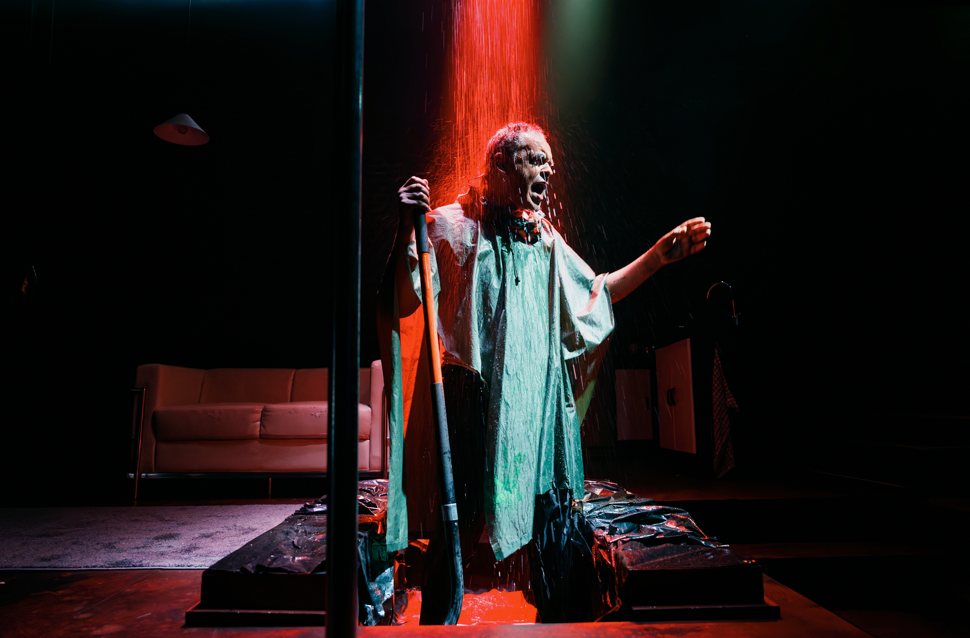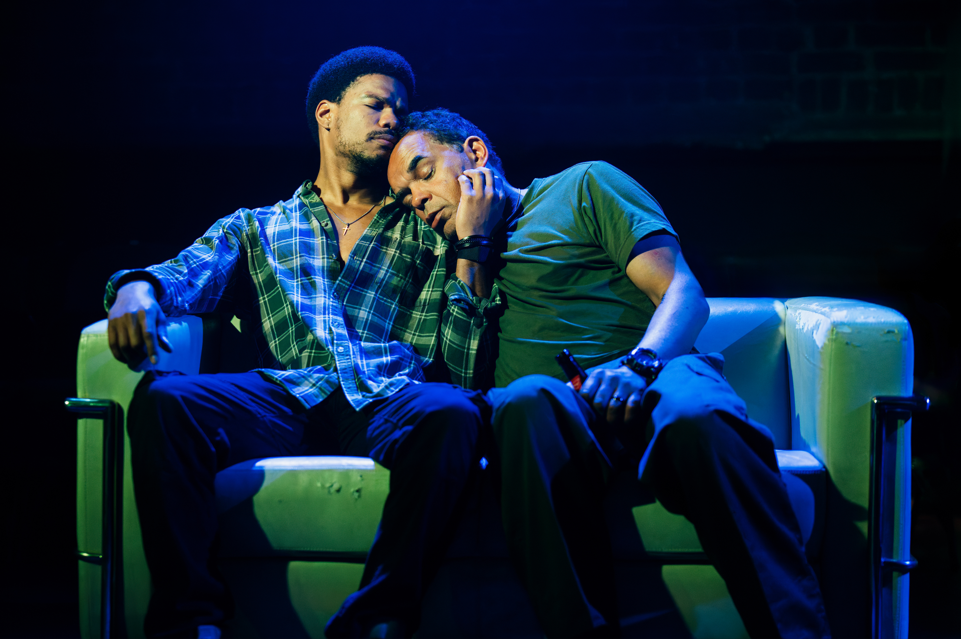The Book of Grace – Arcola Theatre, London
Suzan-Lori Parks’ play The Book of Grace packs a real punch under the direction of Femi Elufowoju Jr.

The Book of Grace
This is the second time I’ve seen a play by Suzan-Lori Parks. Similar to other playwrights like Lynn Nottage, Parks’ work is self-referential, creating links and synergies which reward repeat forays into her world(s). The last play by Parks we saw on the blog was White Noise, a 2021 production at the Bridge Theatre. This play grew from a moment in Parks’ earlier work Father Comes Home from the Wars. Likewise today’s work The Book of Grace is the bringing to life of an unseen character from Parks’ Pulitzer Prize-winning Topdog/Underdog (2001). First performed in 2010, Parks subsequently revised her work and this production at the Arcola Theatre uses the revised/final text.
But what’s it all about? Well, Topdog/Underdog told the story of two brothers, Lincoln and Booth. Grace was the offstage woman Booth had his eye on. In The Book of Grace, she takes centre stage. Sort of. We’ll get to that, but also I can’t give too much away. What I can say is that this work is a three-hander. There’s Grace of course (Ellena Vincent). She’s married to Vet (Peter de Jersey), a member of the US Border Patrol and difficult man, to say the least. Making up the trinity (a significant choice of words) is Buddy (Daniel Francis-Swaby), Vet’s son.
Like so many a story, Buddy’s return, ostensibly to attend an award ceremony in honour of his father, upsets a fragile peace and sets a train of events in motion which will consume this family whole. If I missed the mark interpreting Parks’ writing last time, this time I found it exceptional. I feel like I need to take a class in it to unpack everything. The Arthur Miller-esque broken family and broken dreams. The religious imagery (a Garden of Eden complete with snake(s), a jealous father in a Holy (or Unholy?) Trinity, more besides but no spoilers). A critique of the empty promises of the American Dream, particularly in a Black context. The themes and imagery are complex, the character development mostly likewise: it makes this a compelling watch.

A Demanding Play for Actors and Audience Alike
As such, it is also a play which demands a lot of its cast and directors. And all three of the cast, firstly, are excellent. Vincent’s Grace resists the temptation of Pollyanna-like schmaltziness in favour of a natural optimism tempered with the measured reactions so many domestic abuse victims use as a means of protection. De Jersey’s Vet is like a powder keg, demanding respect through fear and exploding at those who step out of line. The emotional range Francis-Swaby shows is immense. His character Buddy (or Snake) is mercurial: by turns confident, impulsive, cowering, sweet and vengeful.
The unusual Arcola space works surprisingly well for this kitchen sink drama. There’s a literal kitchen sink by the way, as well as the only on-stage cooking I recall seeing since that Jez Butterworth one. But that is a little beside the point. The audience is on four sides this time, and with breaks to the fourth wall and scenes blocked so nobody misses out on the emotional intensity, it feels like the space is used to its full potential. A literal border running across the set (William Fricker and Rae Smith) is a constant reminder of the familial divisions as well as the broader contemporary American context. The lighting by David Howe is also excellent, and composition and sound by Simon McCurry is on point throughout.
It’s Femi Elufowoju Jr’s direction which helps to draw all of this out. He is a seasoned director, including previous productions at the Arcola Theatre. Perhaps it is this experience which allows him to use the space to its fullest, taking the themes of the play beyond the neat confines of the stage and placing them firmly in our laps. Who is ‘us’ and who is ‘them’? It’s not always clear to Vet beyond the demarcation of the border he patrols, and it’s increasingly unclear to us as we become more complicit in Snake’s judgement and the punishment he will mete out. Elufowoju Jr’s use of visual as well as textual foreshadowing also works its magic to keep us in a state of suspense as the tension increases.
Are there any down sides? Well it’s an intense watch for one. Sensitive viewers should check out content warnings. And the religious themes sometimes relegate Grace to a footnote in what is ostensibly her own story. In other words, with a clear Father and Son in this little Trinity does that make Grace the insubstantial Holy Ghost? I felt sometimes that her character lacked a little depth and background in comparison to the others. But otherwise no, I think this is a professional and insightful production of a fierce and visceral play. I could see it again tomorrow and get even more out of it. There are not many productions I can say that about.
Salterton Arts Review’s rating: 4/5
The Book of Grace on until 8 June 2024. More info and tickets here.
Trending
If you see this after your page is loaded completely, leafletJS files are missing.

